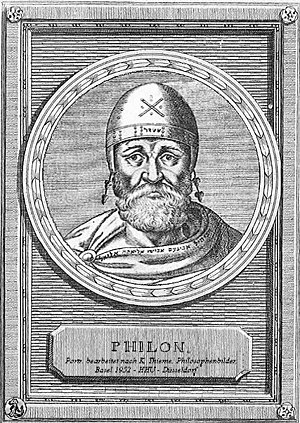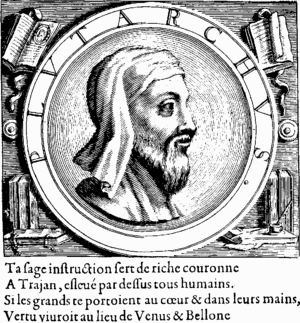A handy reference for the background to early Christianity is coincidentally titled Backgrounds of Early Christianity. The author is Everett Ferguson. Since Doherty discusses Middle Platonism as one of the intellectual matrices to the New Testament epistles, and since relatively few nonspecialists know much if anything about Middle Platonism, here are some notes from Ferguson’s introductory explanation. (I tried to start out with John Dillon’s book but by far too detailed as a beginner’s reference.)
We all have heard of Plato, whose life spanned the fifth and fourth centuries BC. Plato was not as dominant as a philosopher in his own day as he came to be in the early centuries of the Christian era. Ferguson notes that the Church Fathers took their theology largely from the framework of Plato’s philosophy. (p. 335)
Middle Platonism is the name given to the philosophical ideas ultimately derived from Plato (Platonism) in the period from the first century BC to the second century AD. It stands between the original era of Plato and his followers, and the Neo-Platonism that dominated in the declining stages of paganism.
The first century B.C. saw a revival in the study of Plato and Aristotle, who returned to a position of predominance they have not lost since. (p. 387)
I cite common ideas running through Middle Platonic schools of thought as summed up by Ferguson.
Rather than discuss the names mentioned, I have given them all hyperlinks to Wikipedia articles. (The reason I often link to Wikipedia is given in this post.)
Name dropping
Prominent “Middle Platonic” thinkers included:
Prominent church thinkers influenced by their thought systems included:
The New Testament Epistle to the Hebrews is also a repository of Middle Platonic thought. (Ferguson cites here L. K. K. Dey, “The Intermediary World and Patterns of Perfection in Philo and Hebrews,” 1975; and James W. Thompson, “The Beginnings of Christian Philosophy: The Epistle to the Hebrews” 1982.)
Influences
Middle Platonism was not simply a revival of Plato’s original ideas. It was blended with:
- Stoic ethics,
- Aristotelian logic,
- Neopythagorean metaphysics, religion, and number symbolism,
- Xenocrates’ metaphysics.
“Neopythagorean” refers to the Pythagorean revival around the first century. Ferguson writes of them:
The Neopythagoreans continued Pythagoras’s interest in numbers and asceticism and his understanding of philosophy as religious. They were also interested in the stars and intermediary demons between the transcendent God and humankind, contributing to the concept of a “chain of beings.” In addition, they seem to be the principal philosophical source for the view that the material world is bad, an idea that colored Gnostic thinking and was influential in the general pessimism about the world that began to spread in the second century.
The Neopythagoreans speculated on the occult meaning of numbers, were vegetarians, . . . The rule of life — not philosophical speculation — was its chief attraction. The Pythagorean life-style became the ideal representation of the holy, wise man . . . (pp.383-4)
Common features
Given the wide mix of influences that went with the Platonic ideas, Middle Platonist philosophers evidence a wide range of different views on many issues. But Ferguson lists the following as being held in common:
Belief in the possibility that Plato’s and Aristotle’s views about the universe and divine things could be reconciled.
- Plato’s Good and Aristotle’s Mind
- Thus Alcinous identified Plato’s “Good” with Aristotle’s Supreme Mind (the Unmoved Mover).
- Plato’s Ideas or Forms (see Theory of Forms) became the thoughts in Aristotle’s divine mind.
- Thus Philo of Alexandria is the first extant author to explicitly give this equation of the two: “the ideas are the thoughts in the reason of the Supreme God of Judaism (On the Creation of the World 15-20). Given Philo’s otherwise lack of originality, it is conjectured that this reconciliation of Plato and Aristotle goes back to Antiochus.
Belief in the absolute transcendence of the Supreme Mind (God).
- This Supreme Mind could only be reached via intermediary powers, never directly.
- Direct knowledge of the Supreme Mind being impossible, it could only be reached indirectly via a ‘negative theology’
Soul and body
- Middle Platonism restored the idea of the distinction between the soul and the body.
- The immortality of the soul was emphasized.
A World Soul animates the universe.
Matter
- Middle Platonists influenced by the Neopythagoreans regarded matter as evil.
- Others (closer to Plato’s original thought) saw evil as the result of the embodiment of “Ideas/Forms”.
Life’s Goal
Middle Platonists derived from Plato (Theaet. 176B*) their doctrine that the goal of life as happiness consists in “likeness to God, so far as is possible.” (p. 388)
*and to escape [from earth to be with God] is to become like God, so far as this is possible; and to become like God is to become righteous and holy and wise.
Role of Religion
Philosophers had traditionally kept themselves apart from religion even though they often expressed sympathy and attachment to it. But from around the end of the first century that began to change. They started finding enlightenment in religion.
Cicero, Philo and Plutarch
Cicero lived at the end of the first century BC, Philo at the beginning of the first century AD, and Plutarch at the end of the first century.
These three figures, by virtue of the broad nature of their writings, are said to give us “a fairly complete picture of the state of philosophy (the major schools and issues) at the time of the beginning of Christianity.” (p. 388) This is because their writings “reflect the eclectic tendencies of the time and the capacity of Platonism to absorb many other elements and be the integrating framework for new syntheses.”
Middle Platonism is regarded as “the leading force in the last stages of paganism and the major philosophical influence in the formulation of patristic theology.”
<
div>


If you enjoyed this post, please consider donating to Vridar. Thanks!


Seeing I now refuse to use the word mythicist in this domain, i can say that such allusions are fair and honest. Great and easy to digest.
May I add that if all of you stopped arguing the same derivations as different a salient point may comfortably be reached. The point is, the mythologies of the levant and Mediterranean are very similar and the great teachers may have taken a few centuries to diffuse into general thought. Jesus could have thought the earth was flat but maybe more so, his MYTHOLOGISTS may have thought the earth was flat.
Sophistry was an easy coin as it is today.
Ive never said that I have the ridiculous zeitgeist view of things. Its far more satisfying to create a god in the language and events of the time than spend a life times work studying what gods were.
In that I commend the insane new philosophies of a supernatural god to you. Its the new language, god was a quantum hole and absence of evidence is not evidence of absence. Sorry, the god of israel just basically got lost in all that piffle. Its just very depressing that folk even debate these folk with their very odd ideas of a christian god.
If one is willing to consider “heretics” influenced by Middle Platonism, we might add early esoteric Christian theologians, such as Basilides and Valentinus to the “Name dropping” list.
At the risk of appearing to be splitting hairs, I have been holding off a bit on the Valentinians and co till I catch up a little with the NeoPythagoreans. They are listed here as part of the Middle Platonist development, but I have long been curious to get a bit closer to the specifics behind all that talk about Monads and Dyads and genealogies of various emanations or hypostases or whatever they are. It’s a topic that has stunned me with its boredom and incomprehensibility factors ever since I encountered it. But as anyone reading this blog can see, I am more free now to investigate such things for the current moment than ever before. So will see if I can get a chance to do something on the NeoPyths before my next life cycle.
Hello,
I’m specifically interested in how Neo-Platonism influenced the apologists and church fathers in their development of the Trinity and the metaphysics from the time of Parmenides upto and including Plotinus?
Many thanls,
Letusreason